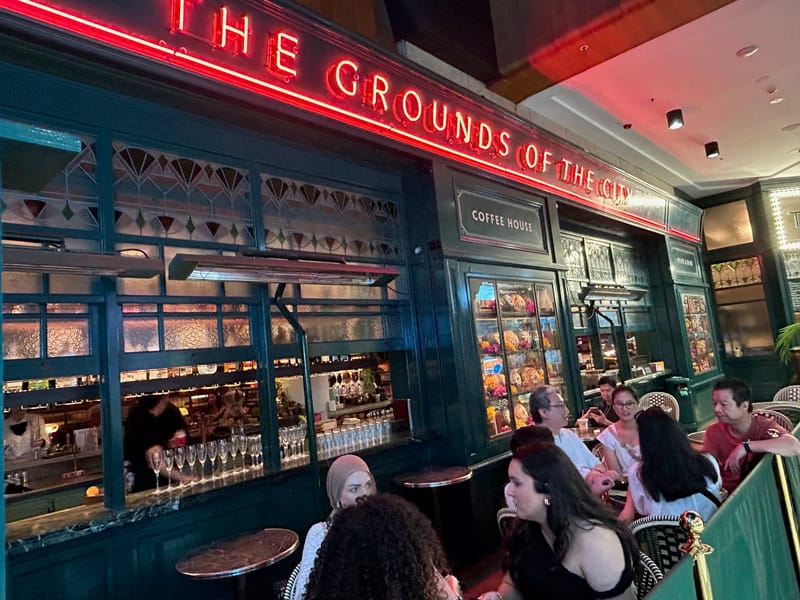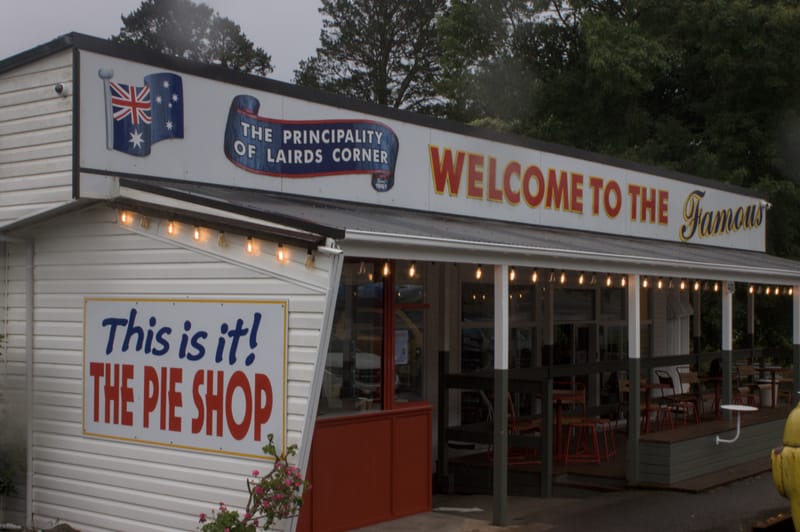Long wet 'worse than Covid' for local farmers
With farmers bogged down in the worst big wet in memory it has never been more important to shop local. The Illawarra Flame reports
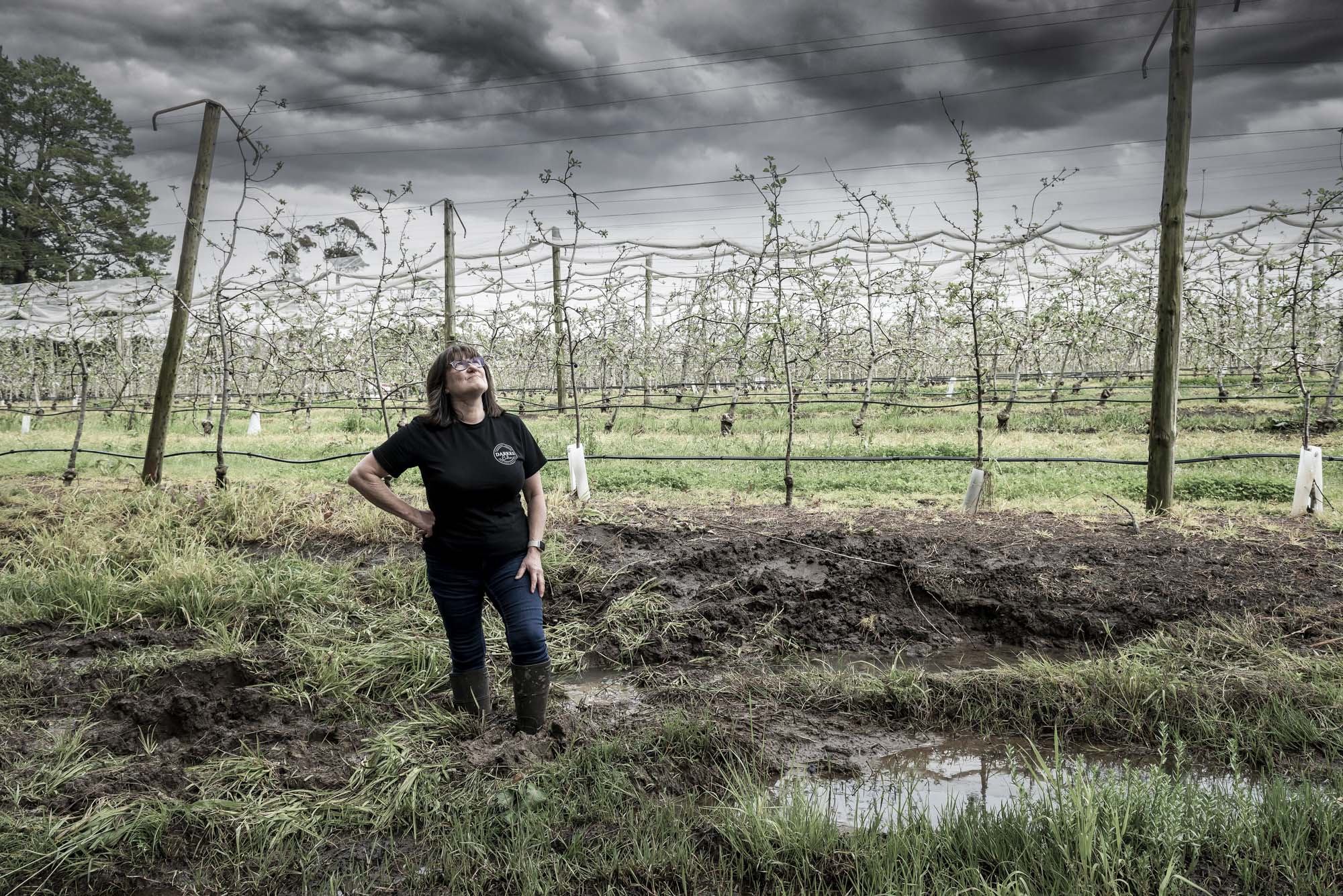
With farmers bogged down in the worst big wet in memory it has never been more important to shop local. The Illawarra Flame reports
Sunday, October 9 was meant to be a celebration at Glenbernie Orchard in Darkes Forest. But instead of hosting thousands of picnickers for Cider Sunday, the farm is reeling after another lashing of La Niña.
It’s the worst year for rain in the history of the sixth-generation family farm.
“In 1950 we had a record rainfall year of 3049mm,” says Jo Fahey, who runs the Glenbernie Orchard with her husband Glenn.
“Now, with two and a half months still left for 2022, we are already at 3233mm.
“So we are way over the biggest rainfall.”
“The biggest difference is that in 1950 the rain was in spring and autumn and dry in between. So it dried out in between. This year it’s been constantly wet with not enough dry weather or length of dry to dry out. The soil profile is constantly at ‘overfull’.
“We are finding this weather has a worse impact on our business than Covid.
“It's interfering with our ability to grow fruit.”
The relentless rounds of rain are damaging the fruit, the trees and the soil. It’s also turned some access roads into mud pits where tractors and cherry pickers cannot go. Normal work around the farm cannot be done.
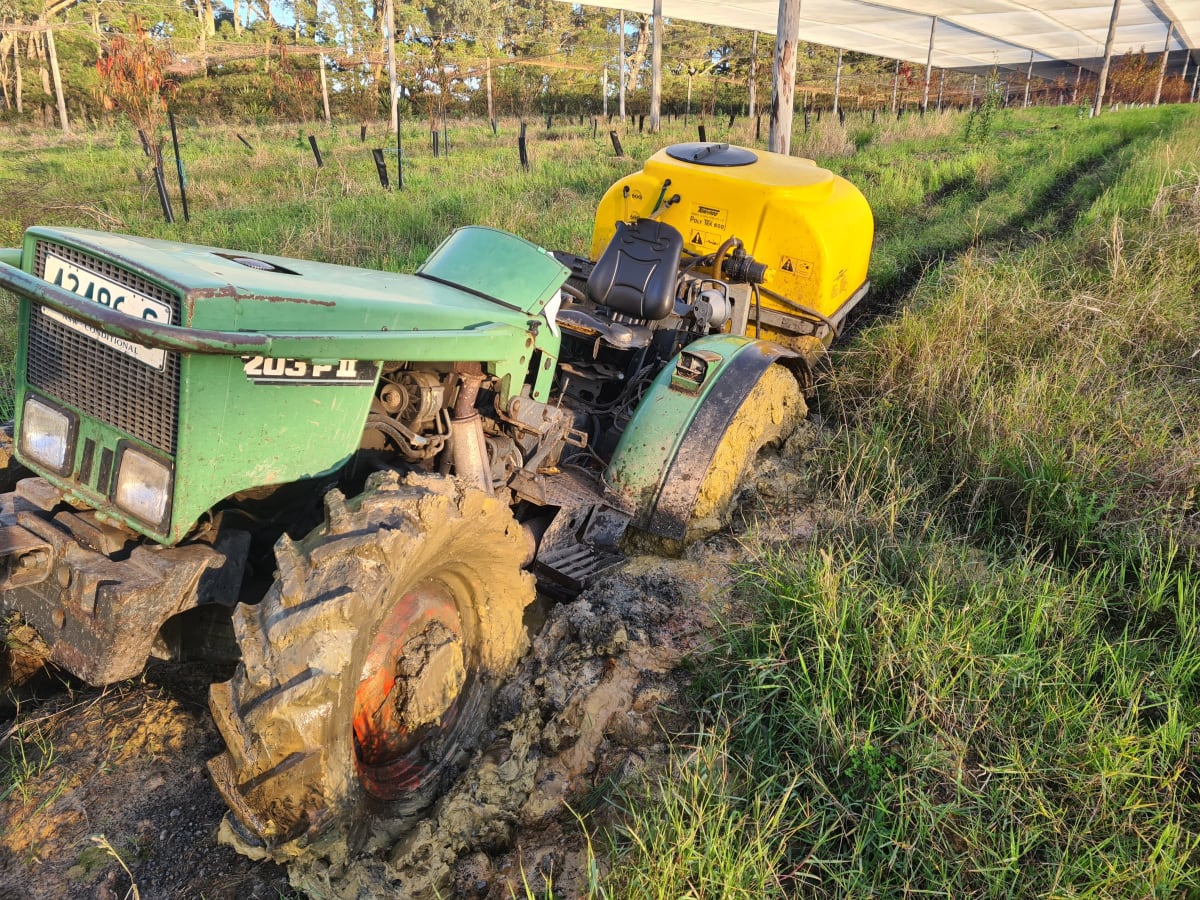
“If we are driving any equipment, it's digging things up and making it really muddy and impossible, and you get things bogged every five minutes. So things like our mechanical ladders – the cherry pickers – are used to get our workers high in the tree to do things like pruning, tree training, thinning the fruit … Any of those sort of normal activities we’re not able to do, because it's so wet.
"We can't get out there physically because the wet makes it dangerous to work in, or it digs up the farm so we can't get the work done.
“The weather is impacting on production that wasn't impacted by Covid. That stuff could all still happen.”
Jo is also worried about pollination. “If it's wet and raining, the bees don't work. They're just hanging in the hive, waiting for the sun to come out. And so if the bees are not working, they're not pollinating.”
It’s an anxious game of ‘wait and see’ as some varieties of fruit trees may not pollinate, meaning trees will bear less or no fruit. Jo says the conditions are “very unusual”, even for farmers accustomed to cycles of drought and flooding.
“It's making it very tough. Glenn is sort of looking at it and going, ‘I don’t know if I can do another year like this’…
“We will … But it’s just like, ‘Ah! I don't want to have to do this anymore, it’s too hard.’
“It's not something we can walk away from. We've just got to forge forward.”
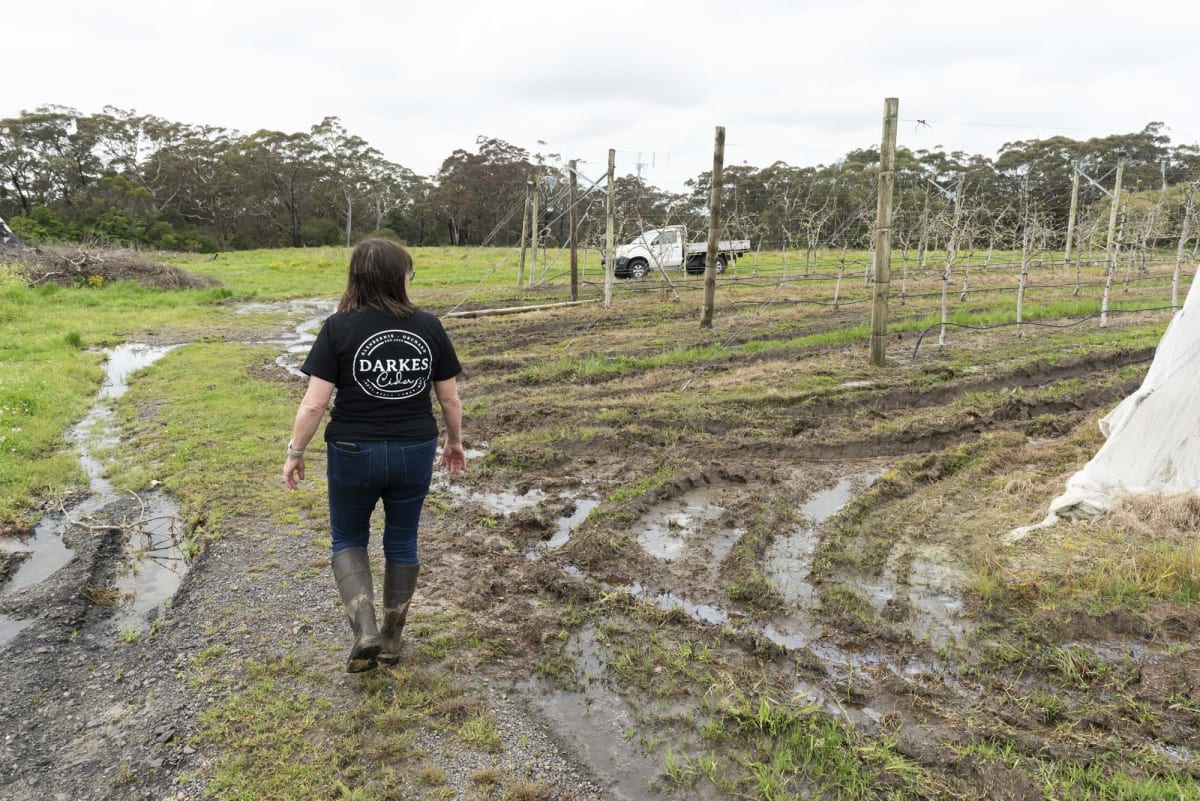
Customers are returning to old habits
In addition to challenging physical conditions, Jo says another reason the current environment is ‘worse than Covid’ for the orchard is that they have fewer direct customers – post pandemic, people are heading back into supermarkets.
“With Covid, people were still buying things from us. People were ordering things online and we were able to pivot our business and deliver.
“But what's happening now is that people are going back to their normal routines and they're not buying online. And if it's wet and rainy and horrible, they don't come out to visit us. So we've got less customers than we had in Covid and we've got less access to people than we had in Covid.
“So that's why, for us, it's worse than Covid right now.”
How you can help
In these tough times for farmers, local residents can help by either ordering direct from the farm or shopping at enterprises that offer a fair deal for growers, such as local co-operatives and the Wollongong Online Farmers Market, new in 2022, a non-profit initiative by Healthy Cities Illawarra and Food Fairness Illawarra.
“Buy direct from those people," Jo recommends. "And support them because they're supporting local and they're supporting local farming and local small backyard growers as well.”
The online farmer's market has some great stuff, she says, including backyard citrus crops.
“It’s limited and seasonal and quite special.
"It's a great initiative, but I think it's struggling for supporters. I hope that it would grow because that is a potentially really good thing for us and other farmers as well locally … their philosophies are in the right direction. They're really communicating with farmers and talking to farmers.
“Another very important avenue for us to sell our fruit is Flame Tree Co-op. It is the local co-ops and the online farmers market, ourselves and our own online sales that we are hoping we can sell our entire crop through.”
This summer, for the first time, Darkes Glenbernie Orchard is planning to sell all of its stone fruit harvest directly to consumers.
“It's no longer an option for us to sell fruit through Coles and Woolworths because the returns are too low," Jo says. "We also can't, as a small to medium family business like this, we can’t comply with all of the things they want us to do.”
This includes requirements like x-raying fruit. Huge transport and packing costs don’t help either.
“It really just boils down to we can't get enough money per kilo for the fruit to cover the cost of growing it anymore, selling it to supermarkets. The supermarket chains pay us too little per kilo.
“So we are going to leave it to the very large farms in the large growing areas to supply the supermarkets and we are going to sell it to our local community instead. I never thought that we'd be able to do that.”
With Darkes launching a string of international award-winning drinks, including Perry, apple ciders and honey mead, over the past decade, if there are any leftovers, Jo is thinking “peach wine”.
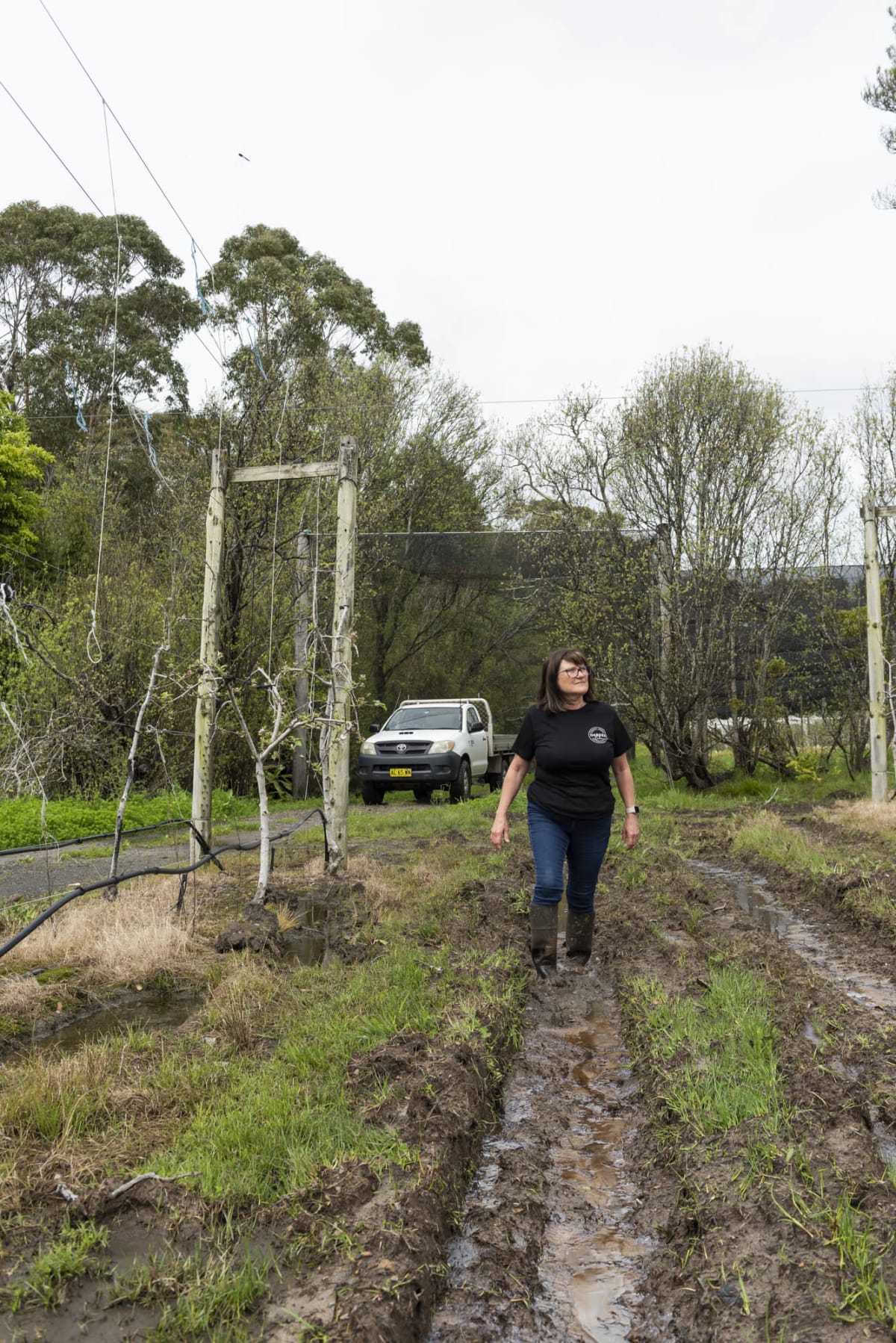
Witnessing the damage
On Friday, October 7 the Flame visited the orchard to photograph one of the worst-hit areas of the farm, a block where nectarines are grown.
“There’s a leaf curl problem, which is a fungal disease, on that block,” Jo says. “So it's not the whole orchard. We're talking about one block of trees, it could be 1000 trees where we'll probably be down – where 50% of our production is lost.”
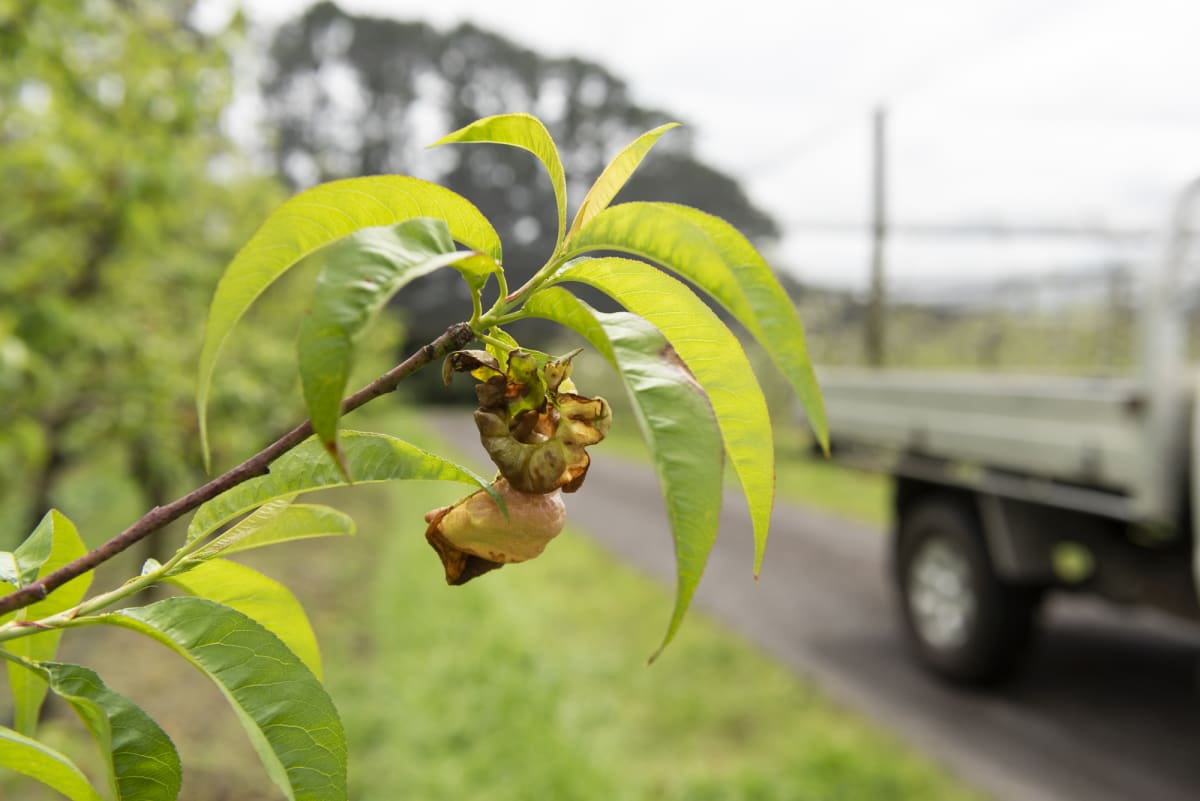
Normally, this block of nectarines would be the first variety to be picked in early November and Jo would take ‘pick your own’ tours into the area. But not this year as any surviving nectarines will be at the tops of the trees – out of reach.
The next few weeks will be critical. Will the bees get to the apple trees in time?
“At the moment we are not sure whether or not the pollination will be affected because a lot of blocks haven't flowered yet. It just depends what happens in the next week, whether their flowers open up and whether it rains at the same time.
“We’ll be testing our soil this week to check for nutrients. In this weather a lot of nutrients are potentially lost from the soil. We may have to give the trees more ‘food’ to replace what’s lost. The testing allows us to be focussed on not wasting resources and putting more in than is necessary. We can be focussed on what the trees actually need versus guessing and over- or under-fertilising.”
“So we're just sort of watching and waiting.”
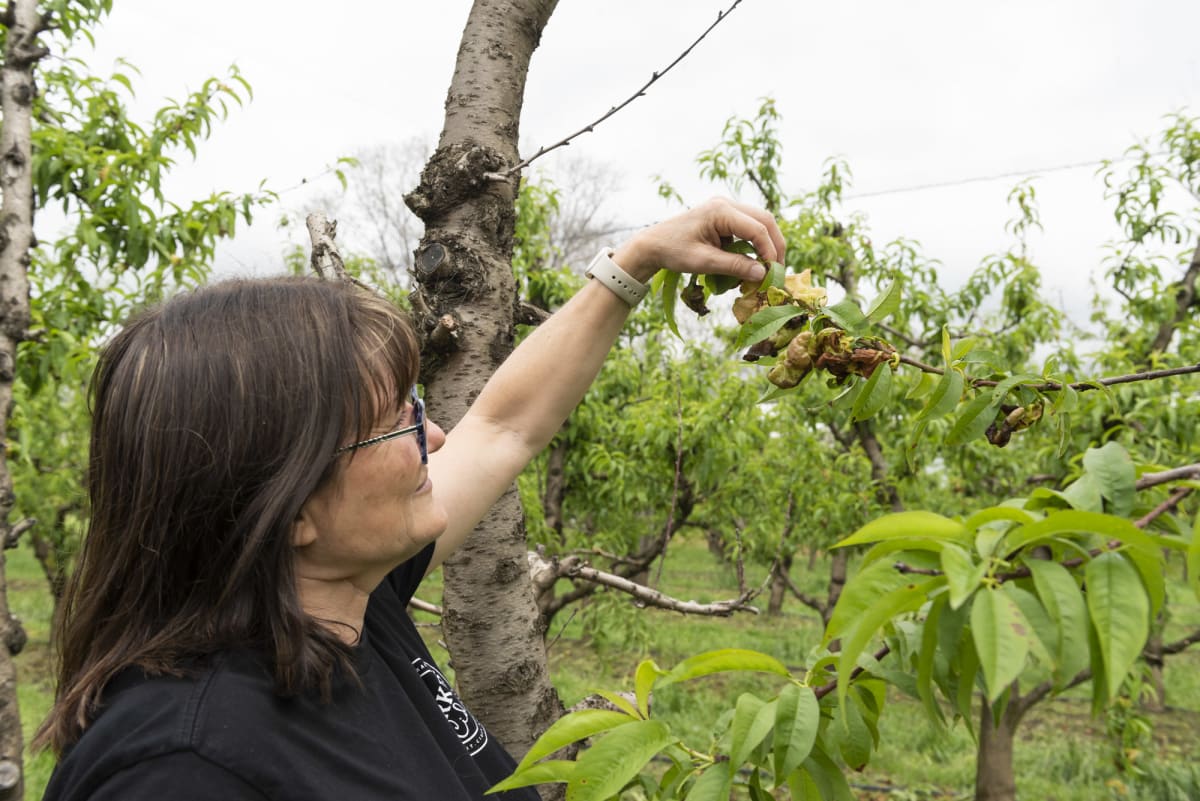
The Long Wet summer
Jo says she felt “devastated” about having to postpone Cider Sunday. “We were excited because it would've been the first one since Covid and because we've managed to get Jimmy Vann, who's a really wonderful local performer. We were really excited about working with local businesses, to have His Boy Elroy up here and our Gelato Man from Helensburgh too."
The paddock that was to host Cider Sunday is soaked and with a long, wet summer ahead, Jo is already planning undercover alternatives to the farm’s popular ‘pick your own’ tours and outdoor festivals.
“I probably need to be providing more opportunities for people to do things like cider [tasting], crushing apple juice and making stuff that demystifies some of our back-of-house activities.
“And instead of a Cider Sunday outside, we'll do Cider Sunday inside. So I'm going to have to look at having areas in our sheds that I can accommodate people undercover.”
In the long-term, with extreme weather ahead, the challenge will be working out what is best to plant where and when.
“We are looking at climate change – because it's definitely real, as far as we're concerned. We are seeing changes in the way our trees are behaving and when the fruit’s picked or when the trees are flowering and how they're flowering. So there's definitely some things that we can see over a long period of time.
“So we're looking at climate change and looking at what should grow here.”
Previously, with summer stone fruit and autumn apples, growing fruit faced different risks that were spread out over a year. If one crop failed, another might succeed. “But now we're kind of feeling like the risk is there across everything.”
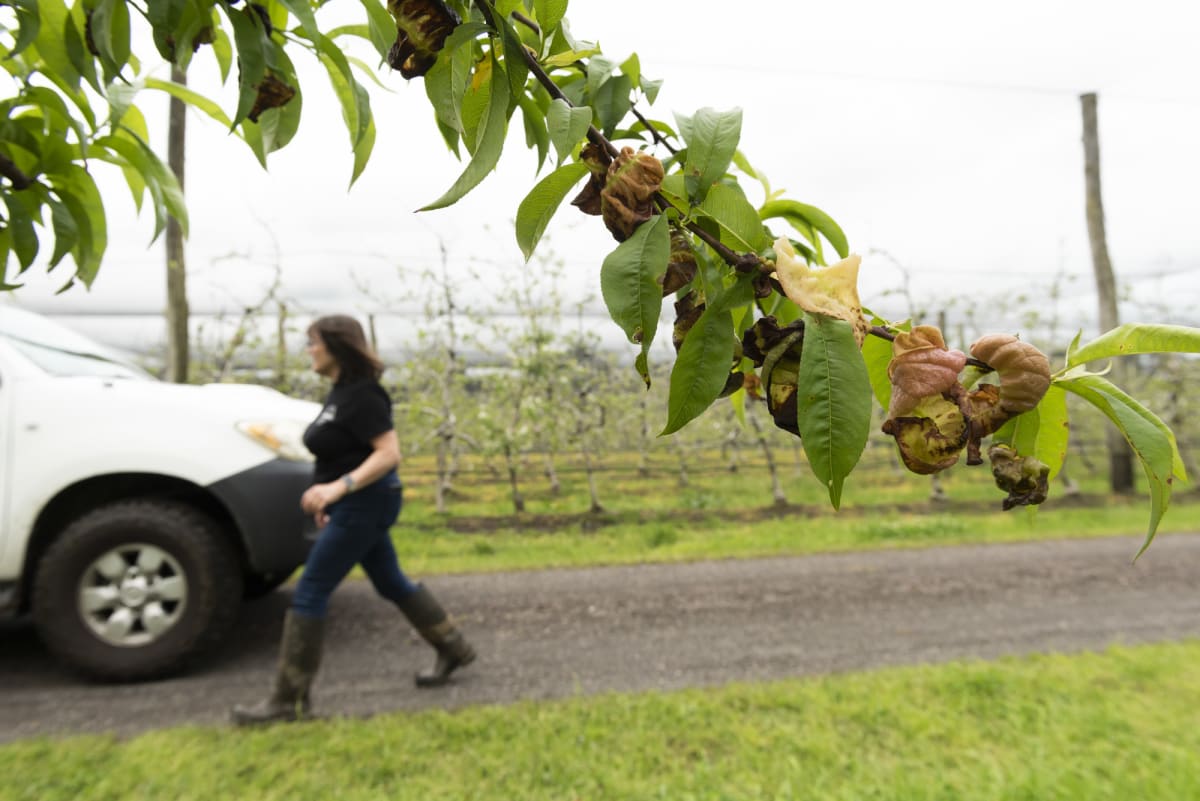
Buy fresh from the farm
1. Shop direct from Glenbernie Orchard in Darkes Forest.
2. Shop at Thirroul's Flame Tree Co-op.
3. Shop at Wollongong Online Farmers Market.
Cider Sunday update
Cider Sunday has been rescheduled for Sunday, 6 November 2022.




